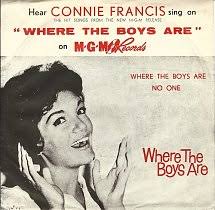Brenda Lee cover
In 1965, American singer Brenda Lee covered "No One", with chorus and orchestra directed by Owen Bradley. It was released in May 1965 by Decca Records as an A-side, however, it was backed with "Too Many Rivers", which became the bigger hit (number 13). [1] Her rendition reached only number 98 on the US Billboard Hot 100. [2] Nevertheless, it also reached #25 on the US Billboard Easy Listening chart, and was the only version of the song to chart in Canada, where it became a Top 40 hit (number 36). [4]
This page is based on this
Wikipedia article Text is available under the
CC BY-SA 4.0 license; additional terms may apply.
Images, videos and audio are available under their respective licenses.


